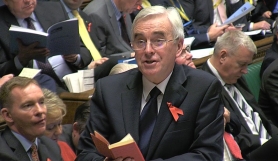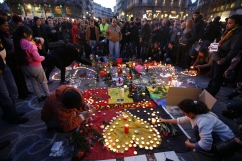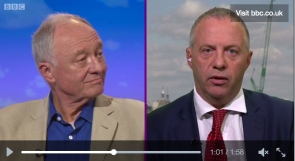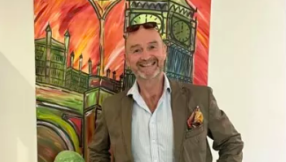A "proper ground war" against ISIS is needed according to former Prime Minster Tony Blair.
The Labour politician and devout Catholic said it was not possible to defeat the militant group by air strikes alone. He spoke at an event sponsored by Prospect magazine in Westminster on Tuesday and admitted he underestimated Iraq's destabilising forces when he declared war against Saddam Hussein in 2003.
However he refused to be criticised for the invasion and said the lessons to be learnt from that war were simple.
"For sure we underestimated profoundly the forces that were at work in the region and would take advantage of change once you topple the regime. That is the lesson. The lesson is not complicated. The lesson is simple. It is that when you remove a dictatorship out come these forces of destabilisation, whether it is al-Qaeda on the Sunni side or Iran on the Shia side."
After he left office, Blair established the Tony Blair Faith Foundation to promote inter-faith dialogues in tackling extremism. He admitted that his knowledge of the Middle East "is a lot deeper today than it was when I was prime minister".
He said that when the Arab Spring began "I was one of these that said 'Let us be careful'. What did we learn from Iraq? We learned that once you get rid of the dictatorship, that is the beginning of a new chapter where all these poisonous forces and influences come out and start to disrupt the situation."
The Chilcot report is due to be published next month and Blair is likely to be heavily criticised. In his comments on Tuesday he refused to answer questions ahead of publication but insisted ISIS "have got to be tackled on the ground".
He said: "There is no way of defeating these people without defeating them on the ground."
Asked whether the legacy of the Iraq war made it more difficult to send British troops into a conflict zone, Blair said: "You can describe it as a legacy or describe it as a fact that arises from the nature of the conflict."
He went on: "We are not being honest with our public if we are saying it is possible to defeat these people without making the commitment to defeat them and to do what it takes to defeat them.
"In my view, defeating them is absolutely fundamental because if we don't defeat them they are going to come and attack us here. This is not someone else's fight, it is our fight as well."
















